It’s Back to School week at Top Ten Tuesday (hosted by That Artsy Reader Girl), so I decided to write about ten books that can help us learn about America.
Right now I’m in the midst of Hamilton-mania, so I’m reading Lafayette in the Somewhat United States by the always excellent Sarah Vowell. I haven’t read very far (so couldn’t put it on this list) but already it has a lot of interesting ideas about the American Revolution and the creation of our country. Thinking about our government feels particularly meaningful right now, as it all seems precarious in a way it never has in my lifetime. It’s both inspiring to learn about their passion, commitment, and intelligence – and at the same time it feels very relevant to remember their weaknesses and biases.
A lot of us, myself included, were surprised by Trump’s election in 2016. We thought we knew our country, and we were wrong. The New York Times challenged readers that November 2016 with six books to help explain Trump’s win. I only read two of them – but those two books led me down a path to other books that help me understand the country I live in.
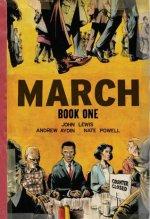
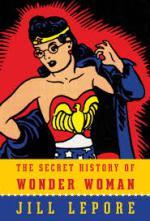
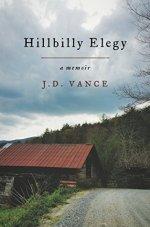
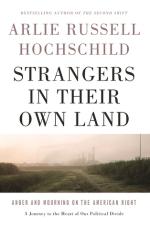
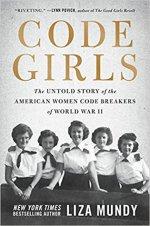
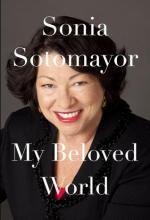
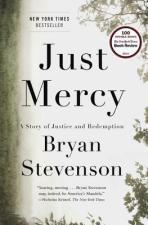
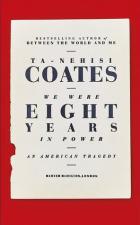
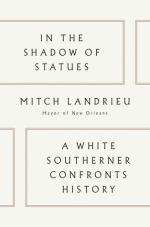
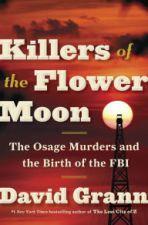
This is by no means an exhaustive list, or even the best books on the topic. But they are books that have made me stop and think, and to see my world a little bit differently.
- Hillbilly Elegy by J.D. Vance: This book surprised me by how relatable it was, and how interesting the author’s story was. For me, it was made more powerful by the parallels I saw between myself and the author in our law school experiences. This is a book to remind you, like Educated, that there are many different ways to grow up in this country, and how much of a difference it makes to grow up in a stable, middle-class home.
- Strangers in Their Own Land by Arlie Russell Hochschild: While I had some issues with the writing, I find that I think of this book often when trying to understand politics in this country, and I’ve recommended it to many. This book looks at some of the poorest populations in rural Louisiana, and why those populations are die-hard GOP voters, even though GOP policies in the state are directly responsible for ruining their livelihoods and even their health.
- We Were Eight Years in Power by Ta-Nehisi Coates: This brilliant book is a series of essays about racial issues and politics in the United States. One essay was written for each of the eight years of the Obama administration. For those of you wondering how we could have a black president for eight years in this country but still have so many racial inequities, this book is worth a read. Coates provides a lot of history of how African-Americans have been treated and how all of that history brings us to where we are today.
- Just Mercy by Bryan Stevenson: One of the best books I’ve read this year, this book is a description of Stevenson’s work in the criminal justice system in Alabama. By creating the Equal Justice Initiative Stevenson represented some of the many African-Americans on death row. He focuses on one case in particular, and I found that I was shocked at the many ways the justice system failed this defendant. This is one of those books that makes me realize I thought I knew how our system worked, and I had no idea.
- In the Shadow of Statues by Mitch Landrieu: not a perfect book by any means, but Landrieu has written a thoughtful history of New Orleans in the last 20 or so years, in particular looking at Hurricane Katrina and its aftermath. His focus is on his recent experience trying to remove four confederate statues. He looks at the history and the law related to these statues, and what they mean to the people who live in their shadows. This is a subject we need to keep talking about.
- March, Book 1 by John Lewis, Andrew Aydin, and Nate Powell: This graphic memoir tells the story of the early days of the Civil Rights movement, through the eyes of the great John Lewis. I really appreciated hearing Lewis’ story, and was particularly interested in the way the movement strategized and trained for the marches. It’s hard for me to imagine the courage of those activists, who put their bodies on the line for a cause, and who accomplished so much. It feels these days like we’re just endlessly slipping backwards. But a book like this gives you some hope.
- Code Girls by Liza Mundy: While this book doesn’t exactly fit the theme of understanding our government, I did learn a lot about our country’s history, and in particular, women’s roles in World War II. I knew that some women were engaged as codebreakers but had no idea of the scope. Young women were recruited by the Army and Navy from all over the country – from Ivy League schools to small towns. The work they did was really interesting and I didn’t realize how much of a role they played in key war victories. But I was most interested in the way this effort changed our military and the lives of these women (and surely the lives of the generations of women that followed). They even changed the city of DC. It’s a shame their work was such a well-kept secret for so many years. This book made me think a lot about what my life would have been like in the 40s. With my love of math, words, and puzzles, I think I might have been a great codebreaker. Who knows?
- The Secret History of Wonder Woman by Jill Lepore: you’re probably surprised that this one’s on the list, but in fact it turns out that the history of Wonder Woman is also the history of feminism in our country, from the turn of the century on. This book details the creation of our favorite female super hero by William Marston and the two women who never received any credit. Their story is a fascinating one. If you’re a fan of the recent movie (and if like me, you grew up on Superfriends and the tv show with Lynda Carter), you will enjoy this history, and you’ll find there’s a lot more to Wonder Woman than you realized.
- Killers of the Flower Moon by David Grann: This is a powerful story that describes a series of murders occurring on one reservation in the 1920’s. The Osage had been moved to a remote part of Oklahoma, and when the land struck oil, many of them became wealthy. Unfortunately, their money also made them a target. This is a book not only about a murder mystery, but about the pervasive racism that affected how our legal system treated Native Americans. This book also describes how the FBI was created by J. Edgar Hoover.
- My Beloved World by Sonia Sotomayor: If you’re interested in books about lawyers, law school, and the justice system (you can see it’s a common theme in my reading) you will appreciate this memoir by Sotomayor, which describes how she went from a disadvantaged childhood to the U.S. Supreme Court. She grew up in a poor Puerto Rican community in New York, and had to struggle not only with racism but she also had severe diabetes. Sotomayor knew as a child that she wanted to be a judge, even though no one in her community, or outside it, would have thought that possible. Her book is a fascinating look at how she overcame the many challenges she faced, and its also an interesting look at how one becomes a judge, and a Supreme Court Justice, in this country.
I also thought about fiction that has given me insights about my country. Books like The Leavers and Behold the Dreamers help me put myself in the shoes of immigrants (not so hard since my father and grandparents were themselves immigrants). Homegoing and The Underground Railroad helped me understand the history of slavery and and our treatment of African-Americans afterward, and I recommend both of them. But the one I would recommend most highly right now is The Hate U Give by Angie Thomas, about a teenage girl who encounters violence when she and her boyfriend are stopped by police. Increasingly, we are all impacted by gun violence in this country; but not all of us have reason to be afraid for our lives during a routine traffic stop.
I feel like I’ve gotten kind of preachy lately, and if I sound that way, I apologize. Reading is about the only way I know to make sense of my world these days, and I don’t think I’m alone in that. What books help you make sense of the world?

